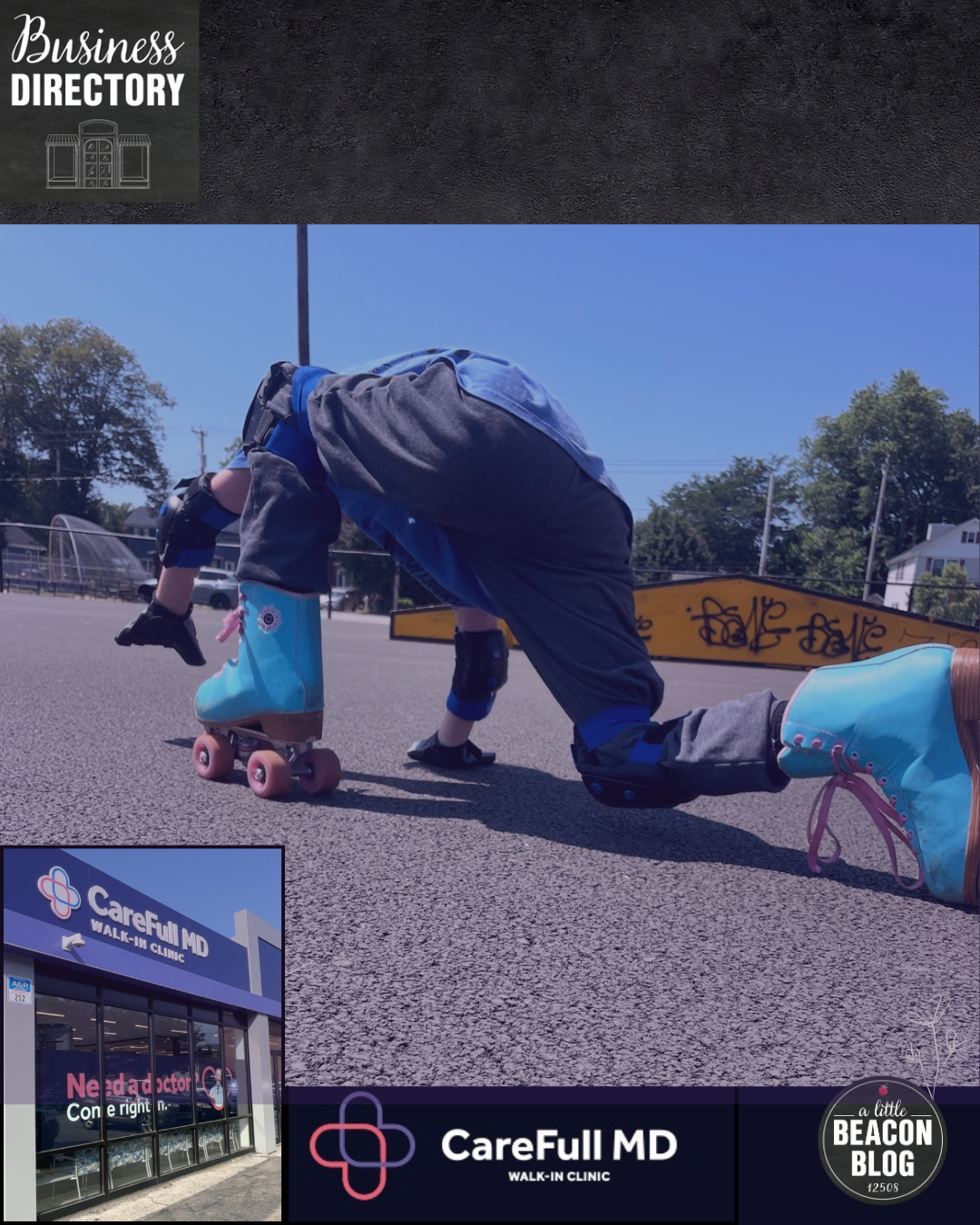UPDATE: On April 8, 2020, New York State directed that debt collection would be classified as a non-essential business. Get details here.
On April 3, 2020, a single mom had just returned home with her elementary school-aged child from a peaceful walk on a less-traveled trail in the Hudson Valley, when she collected the mail from her mailbox. Feeling calm and invigorated from the walk, she opened the mail. Mid-Hudson Valley Federal Credit Union had sent a letter on March 27, 2020, letting her know that as a result of her bankruptcy, she defaulted on her car loan terms. The lender cannot pursue her financially for money owed, the letter stated, so wanted their car back. Right now. In the letter, they “demanded” that she drive it to their Kingston location within 10 days.
She said that the first thing that she thought to do was to contact the bank that Friday evening, but being that it was “nearly 5 pm,” she said, she reached out to a support network for guidance first. In a social media post to fellow moms in the Beacon/Wappingers/Fishkill area, she showed the letter and asked for help and advice. “This is terrifying and humiliating, and I don’t know where to turn, but I have a few friends here so I just need to tell somebody and maybe get some help!“ she published in a post. The next thing she says she did was to call the bank that Friday evening to verify that the letter was not a scam. She says she called again on Saturday morning, but wasn’t able to reach anyone.
Several people offered to help, and shared their thoughts and experiences. A Little Beacon Blog offered to help if her situation didn’t change. We wondered if car repossession had been paused at the New York State level, like home eviction had. We verified that New York State has not created such a protection against car repossession during this time (thank you Assemblyperson Jonathan Jacobson’s office for confirming… and this just in! As of 4/8/2020 debt collection is removed as essential, and is now classified a non-essential business on New York State’s updated list… ALBB is confirming whether this includes departments of a bank, or only independent debt collection companies).
In order to publish this story, we researched the article to consider all the angles of the scenario, to discover how positive change could happen for both the customer and the bank, either at a COVID-19 legislative level, or a bank policy level. We also discovered that the standard, heavily weighted collection letter lingo may not be the best tactic anymore to spur someone into action of getting in touch with the bank to resolve a missed car payment. (And - to be honest - may never have been, even before the pandemic.)
The Background
The person in this scenario, who we will refer to as the “car loan customer,” hired a lawyer and declared bankruptcy in May 2019. She continued making monthly payments on her car, but missed September 2019. “I missed one payment in September 2019 when I just didn’t have enough,” she told A Little Beacon Blog. “I have had no communication from Mid Hudson Valley Federal Credit Union about payments received, nor the payment missed, nor any warning that they were going to demand the car back since the discharge.”
She continued making monthly payments for each month after that up through April 2020. At A Little Beacon Blog’s request, she showed us her receipts as we pursued the story. A Little Beacon Blog put calls into the bank to inquire about their policies on car repossession during the time of COVID-19. Meanwhile, we checked in with an attorney and a car dealer who have not worked with this customer, to see if it was normal for a bank to demand a car back from a person in bankruptcy if the customer had been making payments.
Robert Boolukos, an attorney in Beacon who has not worked with this customer, said: “Banks usually don’t do anything if the customer, who filed bankruptcy, continues to make payments. If you’re making the payments, the bank is making money on you. If they repossess the car, they lose money almost for certain. The car goes to a dealer auction and is usually sold for less. If they repossess, they do it knowing they probably will lose the money.”
When we asked a former car dealer, Rick Brownell, how repossession works, and what happens to the car, he told us: “The car goes to an auction for licensed dealers. The lending institution has the right to go after the owner if there is shortfall from the sale (if the customer is not in bankruptcy). The lender rarely recovers anything. The customer then has a repossession on their credit.”
If the customer is in bankruptcy, it can be a little different, Rick explained: “If the customer who declared bankruptcy continues to make payments on the car during and following bankruptcy, the lender is OK and will usually not take any action. I have sold many people cars who have declared bankruptcy. It’s best that they stay loyal to that lender in the future. The lender will structure the loan in many cases to help lengthen the loan, for instance. They just want their money; every penny.”
There was also a question of whether this customer had “reaffirmed” on the car loan. Robert explained what “reaffirm” means in this case: "When you file bankruptcy and you continue to pay on a car loan, you are paying off a debt you don’t have to pay off, if you don’t reaffirm the car loan," said Robert. Reaffirming the car loan means the customer has signed an agreement with the bank that re-obligates them to the loan again, which may make the customer feel safer if they want to keep the car. Some attorneys feel that it gives a customer a false sense of security, and a judge may not even allow it. Said Robert: "Most judges won’t even let you reaffirm unless there is money in your budget to do it. The judge wants to ensure that reaffirming won’t impose an undue financial hardship only."
This customer had not reaffirmed, but did continue to voluntarily regularly pay the loan to keep the car.
The Research Of Car Repossession
Robert, the attorney, explained that once a customer declares bankruptcy and continues to make payments on a car loan, they will not receive statements. In order to publish this story, A Little Beacon Blog needed to pursue all angles of the situation, including what the customer did in response to receiving this letter. Did she make any action to the lender to stop the repossession? And what was the credit union’s response?
The customer said she called the bank, but left no voicemails at first. So far, this repossession letter had sent her to a place of disconnect. Imagining a tow truck pulling up to her house was clouding her vision. The letter in fact said that it demanded that she drive the car to Kingston. So far, there was no tow truck. But that was the vision this letter created. A Little Beacon Blog reached the credit union’s Marketing Department with questions about car repossession, and they were answered. Here is what the bank said:
The Bank’s Response
A Little Beacon Blog pursued the bank for three days to get a response. At first we called the Loss Mitigation representative who signed the letter. When the representative didn’t call back, we called another Loss Mitigation representative. That person answered, but was shocked we found her number. “How did you get my number?” she asked. “I have been getting a lot of phone calls from other people and I don’t know why.”
Finding out who works where is sort of easy: You just look on LinkedIn. But it prompted another question: Had a lot of car repossession letters gone out recently to create the uptick in phone calls? This Loss Mitigation representative wouldn’t answer our questions on the bank’s position on car repossession during the time of COVID-19 and if there was any deferment offered, but she offered to give our information to her supervisor - who never called A Little Beacon Blog back.
ALBB then pursued the Marketing Department of the bank, to gather any response at all for this story. On Wednesday, the Marketing Department responded with answers in full. They are as follows:
ALBB: What is MHV FCU’s position on car repossession at this time of COVID-19 and New York’s PAUSE status?
“As a result of COVID-19, MHV has developed a comprehensive financial relief program to assist members facing repayment challenges. Our Loss Mitigation Department works with members to defer loan payments for 90 days. As of today, we’ve helped over 2,000 members defer payments during this crisis and we continue to receive more requests daily.
”With regards to bankruptcy, the credit union cannot legally pursue or collect on past-due payments for members that are currently in a bankruptcy status. Therefore, instead of requesting payment, the credit union requests the member to surrender the collateral. If a member chooses to voluntarily pay their loan, we will not pursue a repossession as long as the loan remains in good standing. We encourage all members to work with their bankruptcy attorney to determine the best path forward for their specific situation.
”If a member is facing financial hardship and elects not to reach out to us through our COVID-19 assistance program, or chooses not to respond to our Loss Mitigation Department outreach efforts, collection attempts will be conducted following our normal procedures. We encourage all members that are experiencing financial challenges to reach out to us so that we can understand their situation and determine the best assistance program for their unique circumstance.”
ALBB: Did a batch of letters go out near March 27, 2020, targeting car repossessions? (Which is when this customer’s letter was dated)
“Our Loss Mitigation Department mails individual letters daily when appropriate depending on the individual’s specific situation.”
ALBB: If the person in bankruptcy continues to pay on their loan, do you repossess?
“No.”
ALBB: If a person in bankruptcy misses one month, yet continues to pay on the other loans, do you repossess?
“Every situation is different and we would have to look at the specific circumstance, since it depends on the different chapter of bankruptcy and the loan status.”
The Resolution
With these answers in hand, we turned back to the customer, needing her to get a response from the bank for this article. We only wanted to run this story when we had responses from both sides. The customer pursued the bank again and made contact with her Loss Mitigation representative. A connection was made, and a resolution was found. The bank worked with the customer and kept the loan active.
Here’s what the customer said:
“It seems my payment for March was short by $100, evidently a typo on my part. I paid $240.63 rather than $340.63 and that’s what prompted the letter. A $100 discrepancy! I had to make a payment for $117 by phone today - the $17 is a late fee from September (the original missed payment) - in order for her to file a hardship request for me. If approved I should get 90 days deferred payments.”
This brings us back to the car repossession letter. The letter demanding the car back seemed to be used as a tactic to get people to call the bank to work it out, based on the bank’s response to ALBB’s questions above. “Because of the bankruptcy, I do not receive statements from them, nor do I have access to an online account, so I just send my payments in blind faith that they get them and my account is credited each month,” the customer told A Little Beacon Blog.
As An Aside…
While reporting this article, this blogger received a notice from her own local bank that a payment was late. Got straight into the car to drive the payment to the bank (it’s paid the old-fashioned way at the drive-through via the carrier tube thing, because there are lollipops there for kids, who also love watching the tube get sucked up). During a subsequent phone call to request deferment on the car payments, it was discovered that this blogger was behind in one whole payment, from many months ago.
It was at that time that this blogger realized that she too does not receive statements from her bank. Not sure why - the payments are made using the old-fashioned coupon book. For the second car payment with yet another local bank that this blogger has, that payment is on autopay with a local bank, and statements arrive promptly in the mail.
Moving Forward
So there is a whole lot of miscommunication (or noncommunication, really) going on here, resulting in emotions that could cause trauma to any car customer. With no statements being generated, and heavily slanted language that threatens to realize one’s worst fear, how can the outcome be that a customer will calmly call a bank to resolve anything?
Perhaps this is the time that banks - and any lending institution - should re-think their approach to collecting money. For this car repossession letter to have been triggered by $117 shortfall - there has to be a better way.
Everyone wants their money. Totally understandable. But there are many ways to go about making that happen, that would create a better emotional environment for all.











































